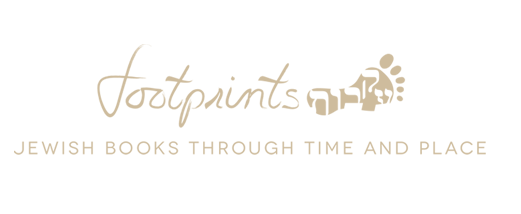We are pleased to report on the progress of Footprints over the last year. The past year has been full of scholarly, professional, and technical activity that has continued to propel Footprints forward. Here are some highlights:
First and foremost, the scholarly agenda of Footprints is proceeding apace. The number of footprints in the database continues to grow, furnishing students and scholars with a larger source for inquiry and analysis. The ongoing growth of the database is due in large part to the partnerships with libraries in North America, Europe, and Israel and their staffs, as well as the work of individual researchers at different stages of their academic trajectories who continue to engage with the project. Beginning this fall, Dr. Lucia Raspe is bringing her expertise in early modern book culture to the University of Frankfurt Library to collect footprints from the world-renowned collection.
You may recall that in a previous letter we announced that we would be directing our energies toward capturing as much information as possible about a finite set of books: incunabula. Our Footprint count for incunabula alone comprises 20% of the total dataset, (interestingly, the same percentage as last year, which means that the entries for other publications continue to grow steadily as well). We are working with the dataset compiled by our partners in the MEI project and should be able to ingest that data soon. There are still fascinating incunabula held in small numbers in collections across the US, Israel, and Europe, and we are continuously working to make sure our dataset is as comprehensive as possible.
Engagement of students and wider audiences remains a priority for us. We are looking forward to bringing together a select group of applicants for training in paleographical skills to work both on their own projects and to contribute to Footprints. In February 2020 we will be conducting a three-day workshop on early modern Ashkenazic paleography that will be led by Dr. Edward Fram from Ben Gurion University. Following the workshop in February 2020, we plan a series of webinars, bringing in additional experts to train people in other scripts from different regions of the world. The call for applications is already up and we are starting to hear from interested applicants.
Our programming and growth are supported in part by external funding measures and in-kind donations. The American Academy of Jewish Research, the Rare Book School at the University of Virginia, The Jewish Theological Seminary, CUNY Graduate School, Fordham’s Center for Jewish Studies, and additional Jewish Studies programs are supporting our paleography workshop.
Our programmers are hard at work at making the site more efficient and user-friendly. A partnership with DICTA at Bar-Ilan University is working to enhance our search capabilities to allow for results in multiple character sets and languages, and will go a long way toward making our search interface accessible to international audiences. Additionally, the staff at Columbia’s Center for Teaching and Learning are preparing a new visualization interface which will depict the riches of the database on maps that can be used in classrooms and for individual research projects. We look forward to its unveiling in the coming months!


Leave a Reply
You must be logged in to post a comment.